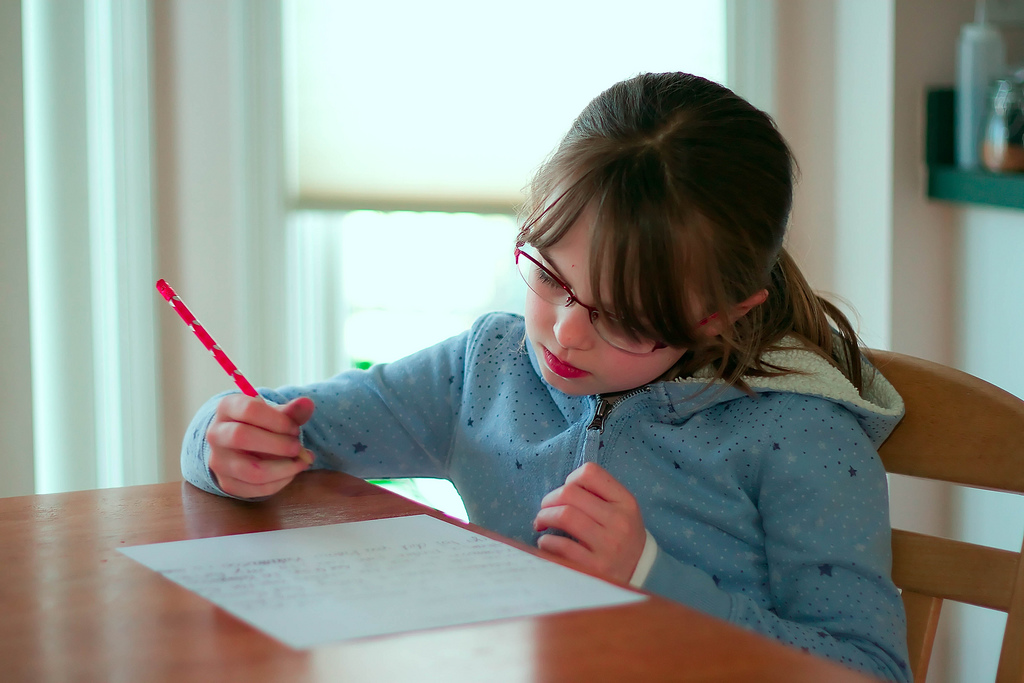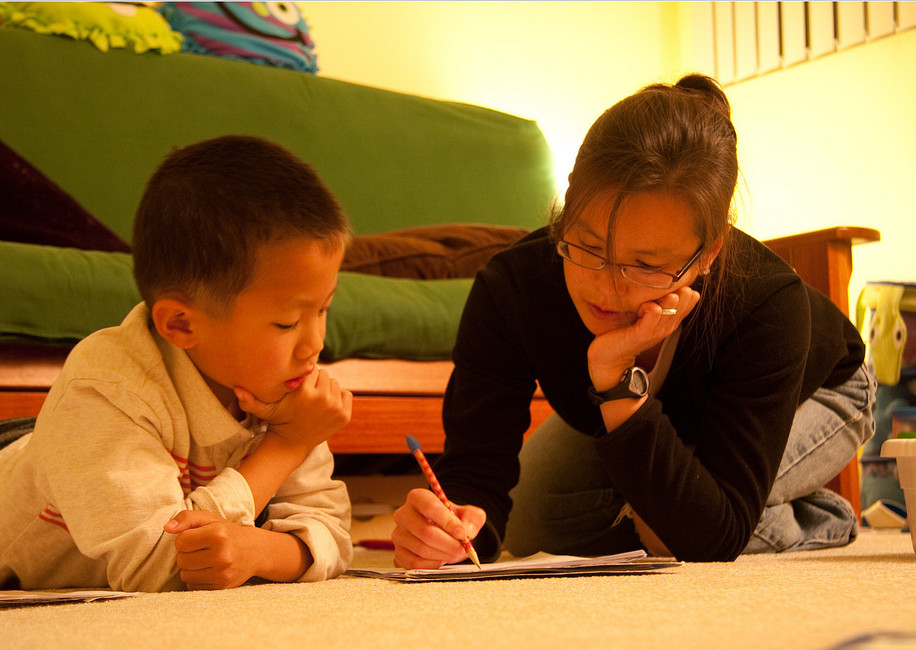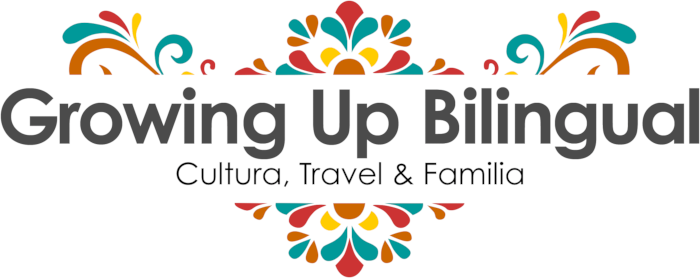This post is also available in: Español
For parents, the goal of raising bilingual children is often filled with both rewards and hurdles. This article explores the personal experiences and insights into the benefits and challenges of second language acquisition.

Personal Journey in Language Learning
I have been interested in languages since an early age. I remember vacationing with my parents along the Spanish coast of the Mediterranean Sea, trying to speak every foreigner’s language I encountered. By the time I was nineteen, I was living in London and attending school. Eager to learn English, I achieved fluency within two months. I always tell my students how I spent three hours daily studying the dictionary. Improving my vocabulary by learning all English words with Latin roots helped me increase my vocabulary exponentially.
Encouraging Bilingualism in Children
When my daughter started kindergarten, all her teachers and friends praised the fact that she was growing up with two languages. They would say, “You are so fortunate to speak two languages! Do you know that that makes you smarter?” However, many of my friends did not insist or take the extra effort to teach their children their native language. It is indeed tedious work, filled with both satisfaction and frustrations. But I did not want my daughter to one day ask, “Why didn’t you teach me Spanish?” This is one of the biggest challenges for any parent: to have their children become bilingual. The key to success lies in patience and consistency.
Tips for Parents Raising Bilingual Children
1. Consistency is Key: Regular exposure to both languages is crucial. Incorporate the second language into daily routines through conversation, reading, and media.
2. Use Available Resources: Nowadays, there are countless online resources, like interactive apps and educational videos, that make learning fun. Weather your encouraging your child to learn Korean online or use an app to learn Spanish, technology can help kids excited about learning a second language.
3. Create a Supportive Environment: Surround your child with native speakers and cultural experiences. Join language groups or community events where the second language is spoken.
4. Patience and Encouragement: Celebrate small victories and be patient with the process. Encourage your child and make learning enjoyable.
5. Using Writing Assignments to Reinforce Language Learning: One of the best ways to learn a second language is through writing assignments that build skills step by step. The best assignment writing includes using new words, grammar, and cultural details to help students improve both fluency and accuracy. However, writing in another language can also be challenging. It can be hard to express complex ideas, and many learners struggle with directly translating from their first language. By focusing on well-organized assignments and getting helpful feedback, students can overcome these challenges and become more confident in their new language.
Challenges in Raising Bilingual Children
Before my daughter was born, someone advised me that I should be the only one at home to speak Spanish to her so that she wouldn’t get confused. Although this advice seemed logical at first, it turned out to be the biggest mistake I ever made. Several factors need to be considered to make the right decision. I live in California with no family except my husband, and no friends who spoke Spanish. Both parents speaking Spanish at home would have ensured my daughter learned English successfully at school. When my daughter was born in 1995, we didn’t have a computer, internet, or Skype. I started working at preschools when my daughter was two, and her Spanish was quickly influenced by constant exposure to English. At one point, when she was five, I felt like giving up. Most parents tend to quit around preschool or kindergarten years. However, persistence pays off—when there is a will, there is a way.
Overcoming Common Challenges
1. Limited Exposure: If you’re the only one speaking the second language, try to maximize exposure through playdates, language classes, and travel.
2. Resistance from Children: Children may resist learning the second language. Make it fun by incorporating games, songs, and stories.
3. Balancing Languages: Ensure that both languages are given adequate attention. Set specific times for each language to avoid confusion.
Raising bilingual children is a rewarding yet challenging endeavor. It requires patience, consistency, and a supportive environment. Despite the difficulties, the benefits of bilingualism far outweigh the challenges. Embrace the journey, and remember that every step forward is a step towards a richer linguistic and cultural experience for your child.
Continue reading Benefits And Challenges in Second Language Acquisition: Part 2 HERE.
You can follow Mar Andres Thomas on twitter @marandresthomas and like her Facebook page. Visit her website MarAndresThomasBooks.com to learn more about her new book “Mi Primer Libro de Cocina Bilingüe: La Comida / My First Bilingual Book: Food”.

- Language Learning and the Internet: What to Look For - August 9, 2013
- Benefits And Challenges in Second Language Acquisition: Part 2 - July 12, 2013
- Benefits And Challenges in Second Language Acquisition: Part 1 - June 30, 2013



Gracias por compartir esta información tan importante para nosotros los padres.
We decided to speak only spanish at home, but sometimes I get frustrated.
Sobre todo cuando mi nene me dice que no me entiende, tiene 6 años y yo con poca paciencia temino por hablarle en ingles, pero como bien decis, querer es poder. Gracias!
Querida Adriana:
Gracias por tu comentario. Sigue adelante, pero constante. No te imaginas las veces que he querido tirarme de los pelos, y las lagrimas que he caído podría llenar una bañera de agua. Siempre tuve fe que conseguiría mi meta, y así fue, pero con mucho sacrificio. Ahora me siento feliz, pues mi hija habla un español culto y con un acento como si fuera nativa castellana. Ved juntos dibujos animados, leed cuentos…todo esto ayudará a que tu hijo tenga interés, y cuanto más practique, más cómodo se sentirá usando el español.
¡Adelante que triunfarás!
i am thankful that at home my parents only spoke spanish to us. they said that at school and extra-curicular activities was were we could speak english. and i’m planning to do the same with my kids
Nina:
Tus padres fueron unos padres muy sabios. En EEUU hay poca cultura sobre la adquisición de segundas lenguas, es más, no hace mucho esto estaba prohibido en este país. A la gente se la rechazaba por hablar un segundo idioma, y se la trataba como si fuera menos inteligente. Menos mal que estas cosas van cambiando, aunque las personas mayores no. Mi suegra estaba aterrorizada porque yo hablaba a mi hija en español, es más, me llegó a decir que tenia miedo que no aprendiera inglés. En Europa, sin embargo, nos hemos dedicado a estudiar idiomas desde que existe la historia. Isabel la Católica, Reina de España en el siglo XV, creció aprendiendo 5 idiomas. Muchas veces pienso que, ya que Europa tiene una larga trayectoria en el aprendizaje de idiomas, ¿Por qué los EEUU no pone un poco la vista en ese continente y toma ejemplo de ello? En España, por ejemplo, el aprendizaje de un segundo idioma obligatorio comienza en la educación primaria, y en la secundaria son dos los idiomas obligatorios, sin embargo, en EEUU, ni siquiera es obligatorio en la secundaria. Aprender un segundo idioma es un beneficio muy grande, y cuanto antes comience uno a estudiarlo, mejor.
Nina:
I replied to your message in Spanish. I understand you want everyone to understand your message.
Anyhow, I will not translate everything I wrote in Spanish, but basically I want to congratulate your parents for the great job their did. There are many people in the USA still afraid that a second language acquisition will slow down the process of learning English. Learning languages do not cause delays, it benefits the learner. Back in the XV century, Queen Isabel of Spain, grew up learning five languages. IF they could do that back then, what can we do in this era with so many resources at hand? If there is a will, there is a way, right?
Lindo post! Realemente nos sentimos identificadas por estar pasando por lo mismo! En casa todos hablamos español y en la calle todos hablamos ingles y mi esposo con sus amigos italiano y portugués jejee… eso es lo lindo de US es que la mayoría somos inmigrantes y podemos compartir muchas culturas y experiencias!
¡FELIZ DÍA!ॐ
http://mamaholistica.com
¡Exactamente! Vuestro plan es perfecto y con constancia todo se consigue, aunque tarde. Yo tuve que esperar unos 14 años para ver que el español de mi hija tomaba forma, se definía, y ella comenzó a sentirse más cómoda. Mi hija tuvo un problema muy grande con las conjugaciones y las preposiciones, algo muy normal entre anglófobos. Los padres o la gente en general tendemos a ser impacientes, pensamos que algo tiene que suceder en un cierto tiempo, pero esto no nos viene de naturaleza, esto nos viene porque hay gente, supuestamente experta en este asunto, que nos dice que los niños aprenden idiomas de forma rápida y natural, y eso no es exactamente así. Hay varias condiciones favorables o desfavorables que entran en juego, y por muy inteligente que uno sea, o por muy pequeño que uno sea, si no se tiene el ambiente adecuado, el aprendizaje no ocurre. Yo estuve impartiendo clases hace muchos años en un preescolar. Impartía una clase a la semana de media hora. La directora del colegio canceló el curso de español alegando que después de 9 meses los niños tendrían que estar hablando español. Imaginaos la cara que se me puso, no me lo podía creer. Hay que tener mucho cuidado al decir que los niños son esponjas, pues lo son, pero no magos.
Dentro de poco ampliaré el artículo sobre este tema que publiqué aquí. Este es un tema fascinante que da mucho que hablar, y si tenemos la información correcta, la enseñanza de un segundo idioma a nuestros hijos se hará más llevadera.
Excelente información, me viene muy bien!!
Gracias por compartirla!
Desde que mi hija nació (incluso desde que la llevaba en mi vientre), he estado hablándole en mi idioma, el español. Ahora, cuando ya ha cumplido 5 años, ella habla inglés y español, con una pronunciación perfecta.
Ahora se prepara para iniciar el Kinder en una escuela con el programa dual immersion en mandarín y mi satisfacción es enorme.
Definitivamente lo que tú dices es muy cierto, los padres son la clave en este proceso desde su inicio.
Enhorabuena Cristina, me alegra leer tu caso, un caso de exito, y un buen ejemplo para todos los padres que quieres que sus hijos sean bilingues.
Very nice that you have other collaborators working with you in Growing Up Bilingual!
Muy importante que los niños se puedan comunicar en ambos idiomas! Ya me hubiera gustado a mi ser bilingüe desde pequeña, el dinero que me hubiera ahorrado!
I have found that is easier said than done and I cannot take the credit for teaching him. For us it has helped the fact that we are able to travel and spend at least a month a year in Venezuela or Argentina, where of course he is living in Spanish 24/7
I agree, maybelline, it is easier to say than to do. I strongly believe in what I say, because i have been teaching languages for thirty years now, and yet, what works with some children, it does not work with others. However, one thing that I am convinced: exposure it is very important. It is nice that your children can have that exposure, travel to South America every year. I know that had I had the opportunity to take my daughter to Spain every single summer for a month, she would have spoken Spanish fluently much sooner. I am happy, though, that my daughter is fluent in Spanish, and she has a castilian accent, one hundred percent.
Muchas gracias por la excelente información, tengo 3 peques y me vienen muy bien los tips!
Hang in there that is the key! It´s so exhausting to juggle two languages. I wish I would only speak to my kids in Spanish.